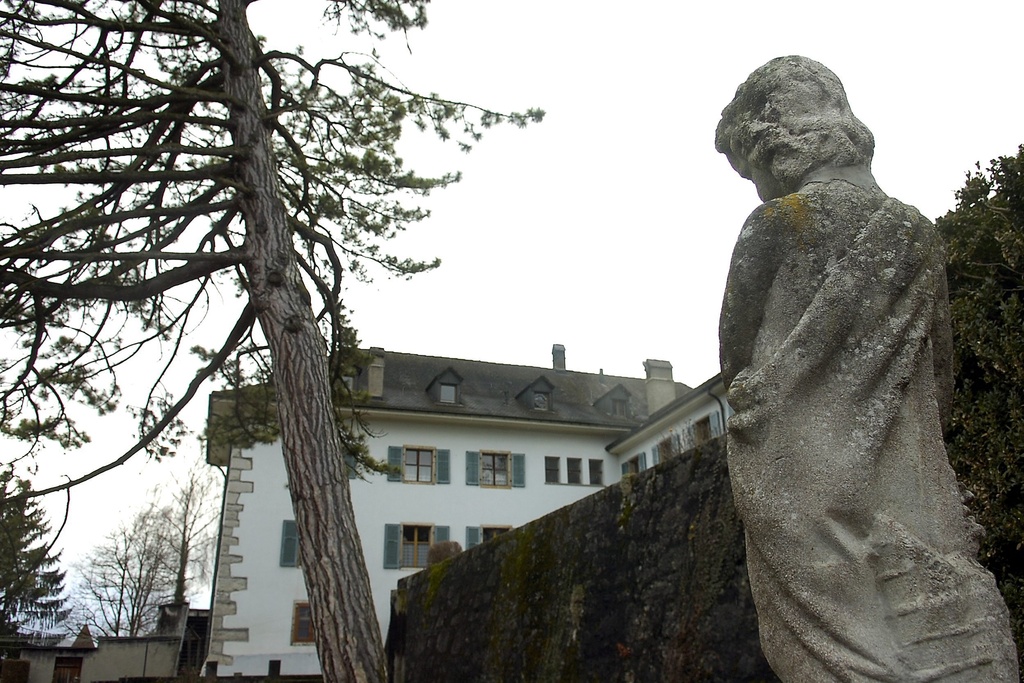
Bishops announce leap in reported abuse cases

The Catholic Church in Switzerland has for the first time compiled detailed statistics of cases of sexual abuse committed by priests and other pastoral workers.
The figures, presented at a news conference in Einsiedeln on Wednesday, show that 104 victims reported abuse to Swiss bishoprics between January and May 2010 – a massive increase on the 15 cases reported Switzerland-wide in 2009.
Opening the news conference, Bishop Norbert Brunner said the country’s bishops believed the best way to tackle the ongoing problem was by urging victims to come forward, so that steps could be taken, and through closer cooperation with the state authorities.
In addition, the Swiss Bishops Conference had decided to improve communication between the country’s six dioceses, to ensure that known sex offenders could not move from one place to another.
Better communication with churches abroad should also prevent offenders from coming to Switzerland to work, he said, “but there is no absolute guarantee”.
The bishops ruled out the creation of a so-called blacklist of paedophile priests, saying a better exchange of information was a better solution.
Presenting the statistics, the head of the recently created expert panel on sexual abuse said the huge rise in reported cases was due to the publicity surrounding the issue and the fact that there were now places to go to report the abuse.
Most of the reported abuse took place in the German part of the country, said Joseph Bonnemain.
Asked why there were few reported cases from western Switzerland and Ticino, he said there seemed to be a greater awareness of the issue and media pressure in German-speaking Switzerland.
Silent victims
“I’m not totally satisfied because I think there are many other victims who have not come forward,” Bonnemain told swissinfo.ch.
“We must take more steps to encourage them to do so. It is not adding to their burden, it is a way of relieving them of a burden. We want them to take personal control and file charges.”
Most of the cases reported this year date back decades – to the period from 1950 to 1990. Just nine of the 104 victims who filed reports this year said they had suffered abuse since 1990.
Bonnemain said he believed that was because recent cases of abuse had already been reported to the Church authorities. What was coming to light now were very old cases – many of which could not be prosecuted because of the statute of limitations.
But the fact there were few new cases being reported did not mean abuse cases had peaked, the general-secretary of the Bishops Conference, Felix Gmür, told swissinfo.ch.
“There could be more cases, happening now, but which will only be reported in 15 or 20 years’ time. So we want to continue with the statistics year by year.”
Gmür said the statistics were the bishops’ way of ensuring transparency.
“Transparency will be achieved little by little. The aim now is not to improve the Church’s image but to help the victims.”
Losing members
The country’s Catholic bishops admitted two months ago that they had “underestimated” the scale of sexual abuse within churches and called on victims to report crimes to the police.
They also spoke of their “shame” and “deep concern” at the revelations of abuse committed by Church officials.
The bishops have changed their position noticeably over the course of the past three months as more revelations have been made public and members of the Church have vented their anger and concern.
In March the Bishops Conference said it saw no need to take further steps on sex abuse following a letter from the pope, addressed to the church in Ireland, which ordered an investigation into the Irish church but did not mention any Vatican responsibility.
A study last month by the Zurich-based gfs research institute showed the Catholic Church in Switzerland was haemorrhaging members, partly in response to the abuse scandal.
Forty-four per cent of ex-Catholics had left the Church in the past five years, and that trend had accelerated in the past year. And 11 per cent of existing members were thinking “seriously” of leaving.
Gmür said in response to the survey that the abuse cases were not the real reason for people leaving the Church. Most people took time to reflect before deciding to leave. For him, the abuse scandal was the “last straw” for people already disaffected.
The Bishops Conference also noted that many people decided to leave the Church in February and March when they have to fill in their tax declarations. In Switzerland Church members have to pay a special tax for the maintenance of buildings and clergy.
Morven McLean and Emily Wright in Einsiedeln, swissinfo.ch
Number of Catholics: 3,380,000
Number of dioceses: 6
Number of priests: 1,607 (including 209 working abroad)
Number in religious orders: 5,203 women and 1,479 men
In 2009 dioceses received reports of 15 victims and 14 offenders.
From January to May 2010 there were reports of 104 victims of 72 offenders.
9 of the cases reported in 2010 related to the period from 1990 to the present. The remainder were from 1950-1990.
Among the 104 cases reported this year, 11 victims were children aged under 12 at the time of the abuse, 15 were girls aged 12-16, and 61 were boys aged 12-16. 12 were adult women and five adult men.
101 out of the 104 reported cases were from German-speaking Switzerland.
The Holy See’s official prosecutor says the Vatican’s disciplinary office had dealt with 3,000 cases of sexual misconduct since 2001, covering “crimes” committed over the last 50 years.
About 300 of these involved “paedophilia in the true sense of the term” meaning abuse based on attraction to prepubescent children. About 60 per cent of the cases concerned adolescents and the rest involved heterosexual relations.
A full trial had been completed for 20 per cent of the cases and only 10 per cent had resulted in the pope dismissing the offender from the priesthood.

In compliance with the JTI standards
More: SWI swissinfo.ch certified by the Journalism Trust Initiative







































You can find an overview of ongoing debates with our journalists here . Please join us!
If you want to start a conversation about a topic raised in this article or want to report factual errors, email us at english@swissinfo.ch.